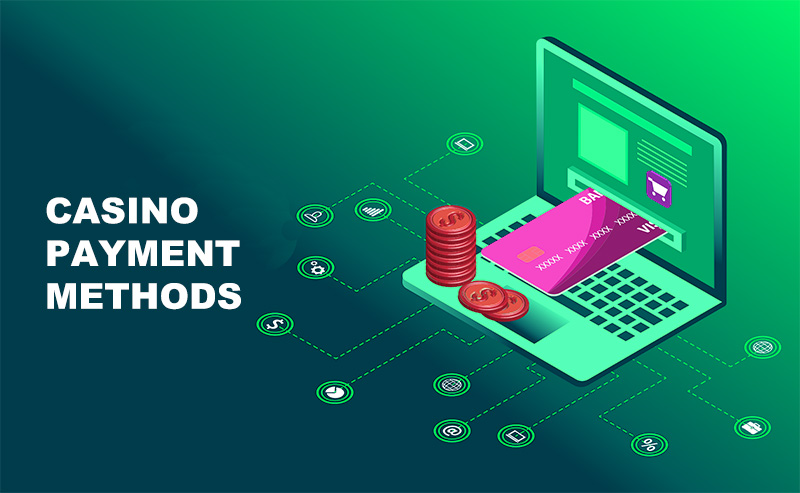
Coming from a payment specialist, I might sound slightly biased, but casino gaming payment methods are the industry’s most fascinating subdivision. I’ve used my expertise in IT to examine in detail how multibillion-pound corporations within the iGaming world are navigating the challenges they face and how they adapt to an ever-changing customer appetite.
I’d say that the word optimal, especially in this context, is subjective. Online casinos implement payment methods that have undergone rigorous trials and testing, especially from a security perspective, so they are all sufficient in their own way.
Whenever I place a bet, the two most important payment method criteria are convenience and security. I’ll go into more detail today, but when I hear the word “optimal”, this is where my mind goes. For other casino gamers, optimal payment methods might be niche payments like crypto, which I’ll also discuss in more detail.
Importance of payment methods in online casino gaming
Payment methods are the lifeblood of the entire online casino business. Without viable, quick, secure ways for people to deposit money onto the site and withdraw their winnings in a timely fashion, the idea would have struggled to get off the ground.
I’m not going to say that the immense success of iGaming since the early 2000s is simply due to the number of payment methods available, as other components have helped to drive the industry forward. However, payment methods had to be at the forefront of the new frontier, especially when online casinos first emerged at the end of the 20th century.
Our overall society was not as aware of the internet and was rightly sceptical of this sophisticated new technology; we’re seeing a similar view emerge now with AI. At the time, there was both trepidation and optimism.
Many people weren’t too keen to make the leap from land-based casinos to online ones until they were put at ease by the emergence of e-commerce giants who made it clear that using your credit cards and debit cards online was secure and convenient. The internet cultivated the rise of new payment methods that relied solely on the internet, such as PayPal, and more recently, Bitcoin and other cryptocurrencies.
Traditional payment methods – early beginnings
It’s been 30 years since the launch of the first online casino. Those who remember the industry from then understand how different it was. Internet connectivity was slow and expensive, and home PCs were luxury items that only a few households could afford.
Despite all this, the payment methods implemented in the first half-dozen years of the online casino industry were not just the run-of-the-mill traditional payments you would expect. While it’s true that there were nowhere near as many payment options as there are in today’s market, digital wallets like Neteller were already establishing themselves alongside traditional payments like bank transfers, VISA and Mastercard.
21st century changes
However, by the turn of the millennium, Neteller had commanded dominance in the online casino industry, handling over 70% of all online gambling transactions. So, the idea of “traditional” payment methods was a term that adapted to the changing attitudes gamblers were adopting in the online casino industry.
This pendulum swung back in the mid-2000s, as the 2005 UK Gambling Act, which is still the most pioneering and thorough piece of online gambling legislation, brought in a new wave of online customers.
The UK had an intriguing relationship with gambling anyway; it’s welded into the psyche of the sporting culture more than in many other European countries, and the legitimacy of the online casino gaming market that resulted from this landmark watershed change in legislation meant that more traditional gamers entered the market, using payment methods such as VISA.
Debit cards remain the optimal payment method for many as they link to their bank account, and if they have any issues with them, they can call their bank immediately. That doesn’t mean that digital wallets and electronic forms of payment are any less convenient — it is truly a matter of personal preference.
Mobile apps – changing the trajectory
Twenty years after the UK Gambling Act, a handful of key changes have meant that the law has kept up with the market — and mobile apps have become the new, dominant devices that people use to play online casino games.
Although roulette and blackjack games tend to be played on PCs and wider-screened devices, mobiles and tablets have hoovered up much of the competition, with many slot game design titans such as NetEnt and Pragmatic Play creating projects specifically for that audience.
Given the significant shift in casino gaming and the broader societal shift where everything we do goes through our phones, e-wallets have become the primary choice for gamers, particularly millennials.
The explosion in the number of people using e-wallets has meant that Google and Apple Pay have quickly become the ideal way for many of us to make our transactions, which is presenting a growing challenge for more established digital payment companies such as PayPal. Millions of us now tap our phones to pay in a supermarket or use them to deposit at an online casino; the declining use of physical cards has become evident in our society, especially over the last few years.
Mobile phone companies have developed secure technology that allows fast access, which has sealed the deal for many. As discussed at the beginning of today’s article, convenience and security are the two bastions of optimisation in online casino payment methods.
Best of the rest – emerging payment methods
No industry that boasts the consistent growth of the online casino industry ever remains in one place. It doesn’t matter if it is emerging casino gaming platforms with plans of global casino domination or smaller start-ups looking to provide quicker or more secure ways to deposit funds — it’s a budding industry that continues to create and encourage innovation.
While e-wallets took the baton from traditional methods and continued driving payment innovation forward, this decade has seen the emergence of cryptocurrency as a viable alternative. Although Bitcoin first emerged in the latter stages of the nighties and has become a multitrillion-dollar market, it wasn’t until recently that casinos genuinely started to explore its potential as a payment option.
Cryptocurrency payments have made a mark in the casino industry because everything is logged, publicly viewable and verified by the blockchain. It provides decentralised proof of withdrawal and deposits when you interact with an online casino and removes the need to provide extensive personal information before you make a deposit. Instead, you can simply connect your wallet and begin playing.
Those who have invested in cryptocurrency or understand how the market works have moved toward this payment method, as again, it is optimal for them due to their intricate knowledge of crypto and blockchain and their understanding of how the system works.
Maintaining Responsible Gambling Practices
Although the rise of payment methods has opened the doors for new types of casino gamers to enter the market regardless of the type you opt for, it’s vital not to lose track of responsible gambling practices. Here are some of the critical foundations of responsible gambling that you should implement in any gambling activity:
- Set responsible time and spending limits
- Do not chase losses
- Don’t gamble with money you can’t afford to lose
- Seek out help from a problem gambling service if you or somebody you know is having trouble
Gambling is not a source of income and should never be viewed as one. This is crucial to remember. Keep gambling within the time and financial limits you have set.
My Final thoughts
Without sounding like a parrot, if there’s anything to take from my ramblings today, it should be that convenience + security = optimal. If you’re a crypto aficionado, this will mean you use Bitcoin to play. If you’re an Apple buff, you might not have time for anything besides Apple Pay.
All these payment methods can provide suitable, resilient and secure ways to deposit funds at an online casino. As the scope for innovation in casino gaming ideas becomes slightly thinner due to the sheer number of creations and design ideas thrown into the mix over the last 20 years, payment methods are becoming one of the newest ways that casinos are looking to grow their customer base.
Provided you understand the payment method you’re using, any fees you’ll incur, and where to go if there are any issues with a transaction, then, in my opinion, that’s the definition of optimal. Once you have this knowledge, you will understand that payment methods and their security and efficiency are the foundation of the global casino business.

Ryan Spencer is a payment specialist and with a keen interest in innovative technology, e-wallets and cryptocurrency. He also has an IT degree from The University of Birmingham.